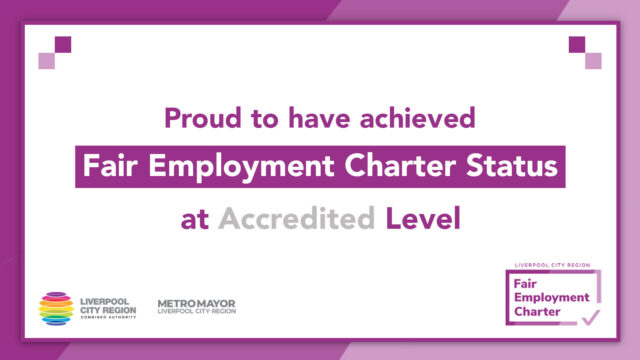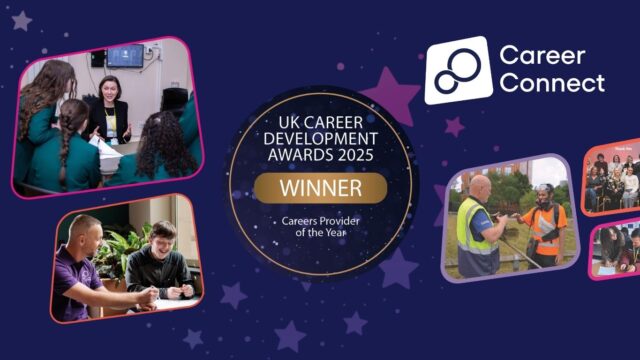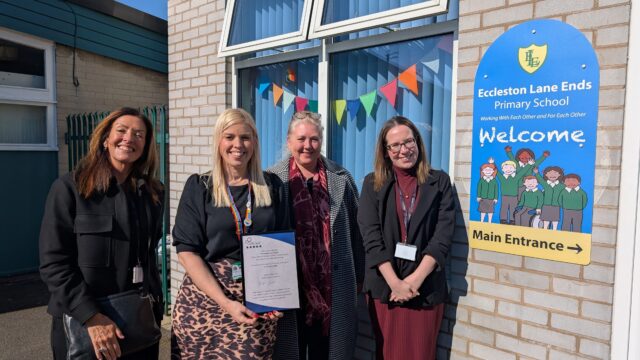Our latest research report, launched today has revealed the life-changing impact that the Sefton NEET Reduction and Early Intervention Service
Our latest research report, launched today has revealed the life-changing impact that the Sefton NEET Reduction and Early Intervention Service has had on young people across the Merseyside borough.
Career Connect is proud to deliver the service, commissioned by Sefton Council via their Employment and Learning team.
Sarah Vaughan, our Senior Operations Manager, and lead for the service, reflects on the best practice that has developed since it began in 2019, and what the future looks like as demand grows.

“I began working in Careers Information, Advice and Guidance over 23 years ago, and I have seen first-hand the impact of major national policy changes on careers provision. The shift away from universal careers service funding has reshaped the support on offer for young people, meaning that careers provision across the country can vary.
Sheila Clark, our CEO, recently highlighted that despite a rise in NEET numbers (young people who are not in Education, Employment or Training), “as a country, we are investing significantly less in careers support for young people,” and that local authorities are facing reduced spending power and competing priorities.
This means that we need to maximise the impact of careers interventions that are delivered to disadvantaged young people, enabling them to reach their true potential.
A proactive, not reactive model
In 2019, Sefton chose to maximise that impact by moving from a reactive, post-16 model of careers support for NEET young people, to a proactive model, working with young people identified as having ‘at risk of NEET’ characteristics from Year 9 (while still maintaining the post-16 service).
The aim of the service is to narrow the gap between those young people who can navigate and move on to their next step seamlessly, and those who face challenges and are less able to access opportunities without guidance and support.
The earlier that a young person at risk of NEET is identified and engages with an adviser, the sooner they can begin to develop the personal, social, and employability skills needed to move into post-16 pathways.
Needs-led, bespoke provision
The early intervention model focuses on building a trusted relationship between the young person and their Careers Adviser, helping them stay engaged with learning and on a path to post-16 provision.
The service is needs-led, providing bespoke interventions to the individual young person. We have specialists within the team to deliver intensive support – for example, advisers who have expertise, knowledge, skills and understanding in Special Educational Needs, Youth Justice and Care Experience and Social Care.
Collaboration and no-wrong door
To further maximise impact, we work collaboratively in a multiagency way to ensure we make every intervention count. We work with a ‘no wrong door’ approach. Co-location wherever we can is also important. It is about the service being available in the right place at the right time for the young person, and for their family or carers.
A whole family, localised approach
We provide a whole family approach – parental and/or carer engagement is vital, as we recognise that they have more influence than anyone else on a young person’s career journey.
Having a highly-localised approach is another important factor. We want to help that young person imagine a future in their community and plan their path to get there. They need to know exactly what is available to them locally and be able to build up the confidence to access it. The young person needs to feel that from there, they can go anywhere.
Young people help shape the service
The Lundy Model has also played a key role in helping us shape a service that meets young people’s needs.
This means we actively consult with young people, and share feedback with our own team, partners and stakeholders. We then gather their response and feed this back to the young people and families/carers. In Sefton, this has influenced the marketing materials we use with young people, our communication methods, and the locations where they can access our service.
I am incredibly proud that a number of young people we have worked with on our NEET Reduction and Early Intervention and Post-16 offer have become Youth Ambassadors with Career Connect, sharing their views and shaping what we do as a charity as a whole. Their positive impact has been felt across our charity.
Improvements in outcomes
Using this early intervention model, we have improved outcomes for young people in Sefton. We have seen reductions of between 1% and 16.8% in the percentage of at-risk young people that are NEET upon leaving school, when they have worked with our early intervention service.
We’ve also seen a reduction of between 53-78 days in the average number of days spent NEET.
We are proud to have shown the power of working in this way.
Demand increasing across the country
However, across the country, the number of young people aged 16-24 not in education, employment or training is rising rapidly.
More young people across the country are also presenting with complex needs that can become barriers to post-16 education, employment, and training. The number of SEND young people in need of support is increasing year-on-year. The number of young people being home educated has increased significantly. Mental ill-health is rising (see our research on the relationship between mental health in young people and employment outcomes).
In 2021/22, 22.5% of pupils in England were recorded as “persistently absent” (defined by the Department for Education as missing 10% or more of possible school sessions). This is 1 in 5 pupils.
Sefton Local Authority have invested in young people and their future, commissioning a service that is needs-led and outcome driven, with early intervention and prevention at its heart.
As we see more young people facing complex situations, and demand rising, an early NEET intervention model is, in my view, less a service that is ‘good to have’ – but it is increasingly becoming a necessity.
It is vital to invest now, not just for the future of this generation, but for all our futures.”



